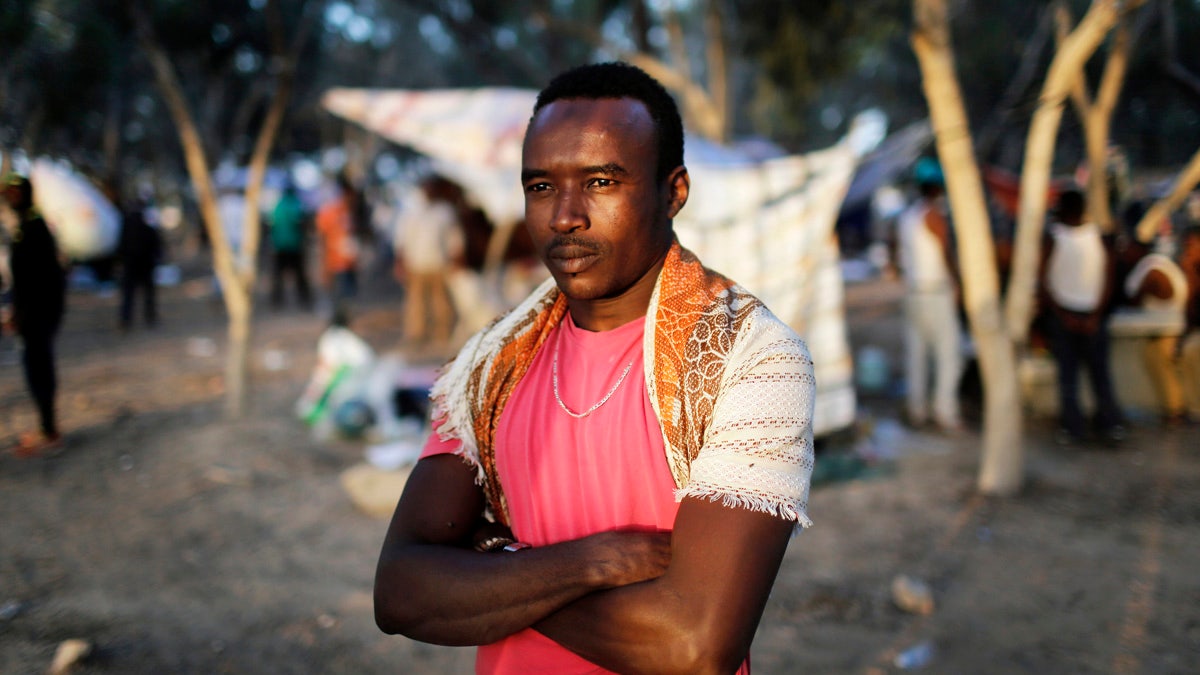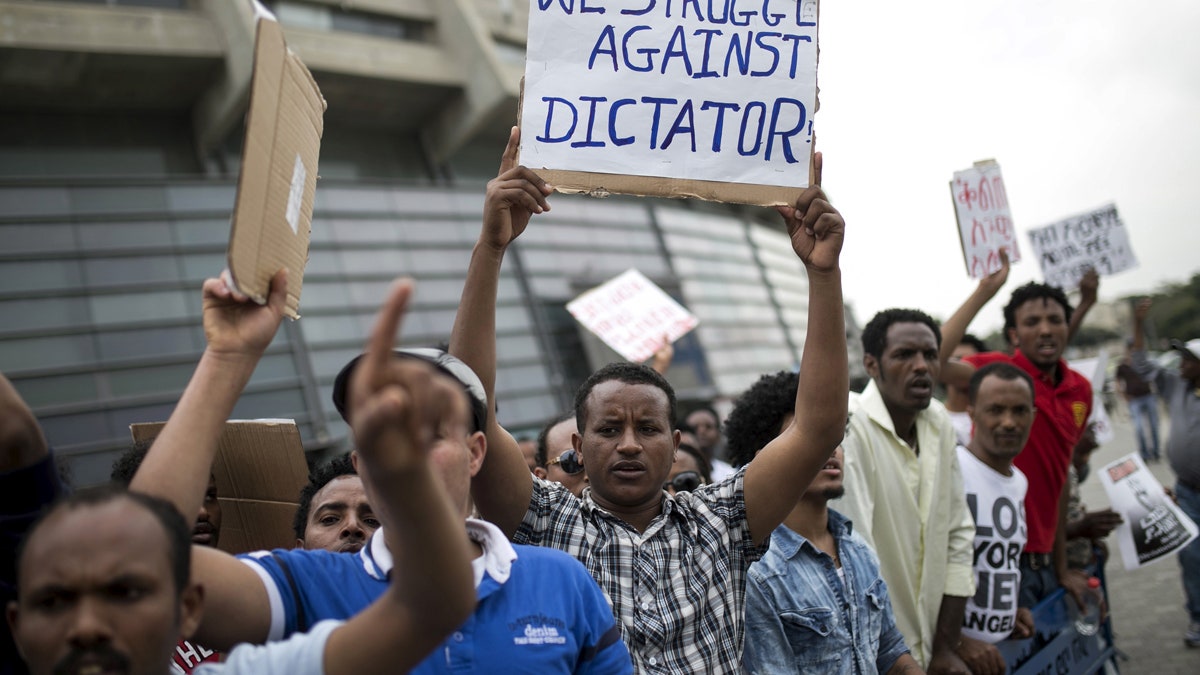
An African asylum seeker stands in the shade of trees during a protest after leaving Holot open detention centre in southern Israel's Negev desert. (Reuters)
Israel on Thursday began implementing a plan to expel tens of thousands of illegal African migrants by April, and officials are threatening to detain those who stay.
“This plan will get under way today,” Prime Minister Benjamin Netanyahu said at the start of a cabinet meeting on Wednesday, France 24 reported.
Under the program, some 38,000 migrants who entered the country illegally, mainly Eritreans and Sudanese, have until the end of March to leave. Each person will be given a plane ticket and $3,500 to do so. After the deadline has passed, this amount of money will decrease and those who continue to refuse to go will face arrest.
Holot, a facility in Israel’s desert south where migrants can stay when they're not working is also set to be closed. Critics have likened Holot to an “open air prison” lacking basic amenities such as heat and medical care.
Israel’s interior ministry said Holot is currently holding 970 people.
The plan was approved in November, drawing concern from the United Nations refugee agency.
GERMAN CONSERVATIVES CALL FOR AGE TESTS FOR UNDERAGE MIGRANTS SEEKING ASYLUM
“We see here the implementation of the decision,” migrant aid worker Adi Drori-Avraham, of the Tel Aviv-based Aid Organization for Refugees and Asylum Seekers in Israel, told AFP.
The Africans currently hold short-term residence visas that must be renewed every two months.
“From today when a person goes to request an extension to their visa, if he does not have a pending asylum application... his visa will not be renewed and he will be given a deportation order,” she added.
The rules have exceptions for women, children, parents of children and victims of human trafficking, but those are temporary, according to Drori-Avraham.
A 2014 report from Human Rights Watch charges that Israel’s system denies migrants access to fair and efficient asylum procedures, coerces migrants into leaving Israel, and gives the country pretext to unlawfully and indefinitely detain them.
Netanyahu, however, defended the plan.

Eritrean refugees hold placards during a protest against the Eritrean government outside their embassy in Tel Aviv in 2015. (Reuters)
“Every country must maintain its borders, and protecting the borders from illegal infiltration is both a right and a basic duty of a sovereign state,” he said.
INFLUX OF YOUNG MALE MIGRANTS FUELS RISE IN VIOLENCE, STUDY SHOWS
But Tsgahans Goytiom, a 30-year-old Eritrean in south Tel Aviv, said he felt he and his fellow refugees were being treated like commodities.
“I see the situation now as very bad and difficult,” he told AFP. “We are being traded.”
He added: “I am not from Uganda or Rwanda. How come the prime minister decided to send people to other countries?”
Israel tacitly recognizes the Sudanese and Eritreans cannot be returned to their dangerous homelands, so it has signed deals with Rwanda and Uganda, which agree to accept departing migrants on condition they consent to the arrangement, activists say.
